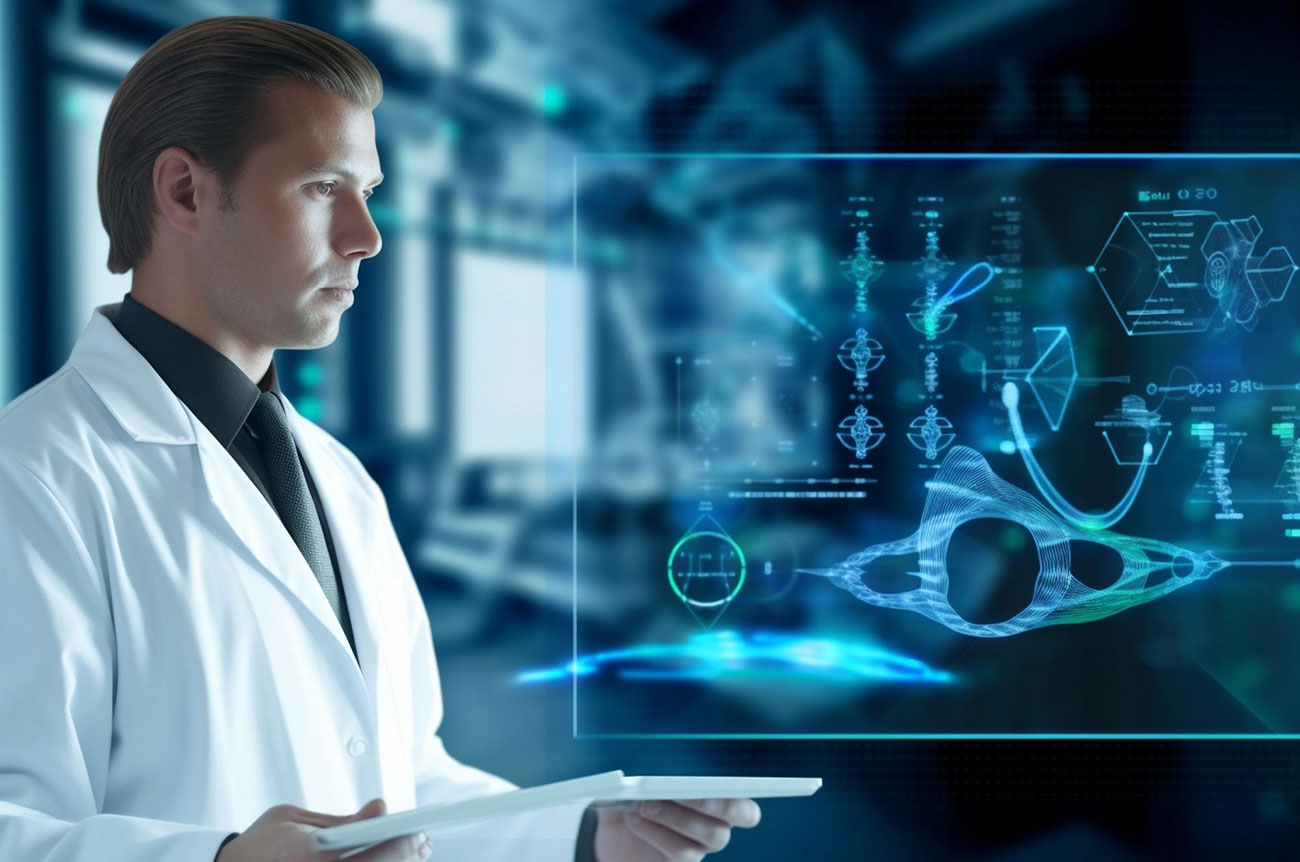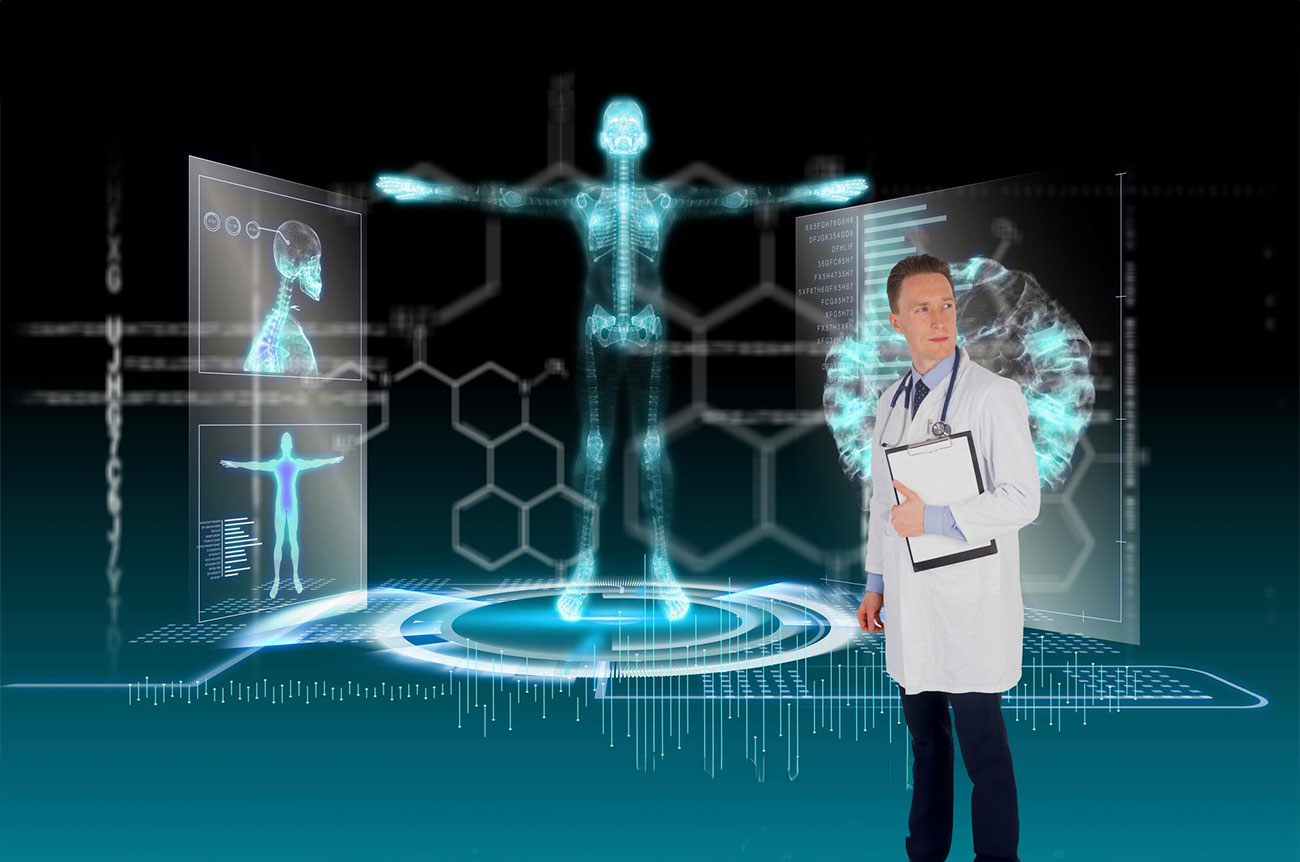
Posted On October 13, 2024
How AI Healthcare Consulting is Shaping the Future of Diagnostic Tools
Introduction to AI in Healthcare Diagnostics
Artificial Intelligence (AI) is rapidly transforming healthcare,and diagnostics is one area where it has made a significant impact. Byanalysing vast amounts of data, AI helps in detecting diseases earlier andmore accurately than traditional methods. This shift towards AI-drivendiagnostic tools is enhancing patient care and improving outcomes globally.
The Role of AI Healthcare Consulting in RevolutionisingDiagnostics
AI healthcare consulting plays a vital role in guiding medicalinstitutions on how to implement these advanced technologies. Consultantsoffer insights on the best AI solutions, helping hospitals and clinicsintegrate diagnostic tools that enhance decision-making and streamlineworkflows. Their expertise ensures that healthcare providers can leverage AIto its full potential, making diagnostics faster and more precise.
Key Benefits of AI-Powered Diagnostic Tools
The integration of AI into diagnostics offers several advantages:
-
Increased accuracy: AI algorithms can analyse complex medical data and detect patterns that may go unnoticed by human experts, leading to more accurate diagnoses.
-
Efficiency: AI-driven tools reduce the time needed for diagnosis, allowing doctors to focus on treatment.
-
Cost-effective: By catching diseases early, AI diagnostics can reduce the cost of long-term treatments and hospitalisations.
How AI Enhances Accuracy in Early Disease Detection
One of the major contributions of AI to diagnostics is its abilityto detect diseases at an early stage. AI systems can process medical images,lab results, and genetic data faster and more accurately than traditionalmethods. For instance, AI-powered imaging tools can identify early signs ofcancer or cardiovascular diseases, allowing for timely interventions thatcould save lives.

AI’s Impact on Personalised Diagnostic Solutions
AI healthcare consulting is not just about implementing technology;it’s also about personalising it to meet individual patient needs. AI-drivendiagnostic tools can analyse a person’s genetic makeup, lifestyle, and medicalhistory to provide tailored diagnostic insights. This personalised approachensures that treatments are more effective and suited to each patient’s uniquesituation.
Streamlining Diagnostic Processes with AI
AI is revolutionising diagnostic processes by automating complextasks and analysing vast amounts of data at high speeds. Traditionaldiagnostic methods often involve manual analysis and human error, butAI-driven tools offer more accurate and faster results. For example, AI canquickly scan medical images, such as X-rays or MRIs, identifying patterns andanomalies that might be missed by the human eye. This not only saves time butalso allows healthcare professionals to make quicker, more informed decisions,ultimately improving patient outcomes.
AI Healthcare Consulting: Bridging the Gap Between Technology andHealthcare
AI healthcare consulting plays a crucial role in guiding medicalinstitutions through the complexities of integrating AI into their diagnosticsystems. Consultants help organisations understand how AI can be tailored totheir specific needs, ensuring a smooth transition from traditional methods toAI-driven solutions. This includes training staff, setting up the necessaryinfrastructure, and ensuring data security and compliance with regulations.The collaboration between healthcare providers and AI consultants leads tomore effective and efficient diagnostic tools, paving the way for atechnologically advanced future in healthcare.
Real-Life Applications of AI in Modern Diagnostics
AI has already made significant strides in various areas ofdiagnostics. For instance, AI is used in radiology to detect tumours in imagesat earlier stages, often before symptoms appear. In pathology, AI tools cananalyse tissue samples to diagnose diseases like cancer with high precision.Additionally, AI-powered algorithms are being used to detect heart conditionsthrough wearable devices, allowing for continuous monitoring and earlyintervention. These real-life applications highlight how AI is transformingdiagnostics, making them more reliable and accessible.
Challenges in Implementing AI-Driven Diagnostic Tools
Despite its advantages, implementing AI-driven diagnostic toolscomes with its own set of challenges. One of the primary hurdles is the highcost of integrating AI technologies into existing systems, which can beprohibitive for smaller healthcare providers. There is also the issue of dataprivacy, as AI relies on large datasets that must be securely managed.Furthermore, there are concerns about the potential for over-reliance on AI,with healthcare professionals needing to maintain a balance between AI-driveninsights and human judgment. Overcoming these challenges is essential for thesuccessful adoption of AI in diagnostics.
The Role of AI in Predictive Diagnostics
One of the most exciting aspects of AI in healthcare is its abilityto provide predictive diagnostics. AI can analyse historical data from a widerange of patients to predict disease trends and outcomes. For example, AI canidentify early signs of chronic conditions such as diabetes or cardiovasculardiseases, enabling healthcare providers to intervene before the conditionworsens. Predictive diagnostics not only improve patient care but also reducehealthcare costs by preventing diseases rather than treating them at advancedstages.
Conclusion
AI healthcare consulting is playing a pivotal role in shaping thefuture of diagnostic tools by making them more accurate, efficient, andpersonalised. As the technology evolves, it will continue to improve earlydisease detection and patient outcomes, revolutionising how healthcareprofessionals approach diagnostics.
